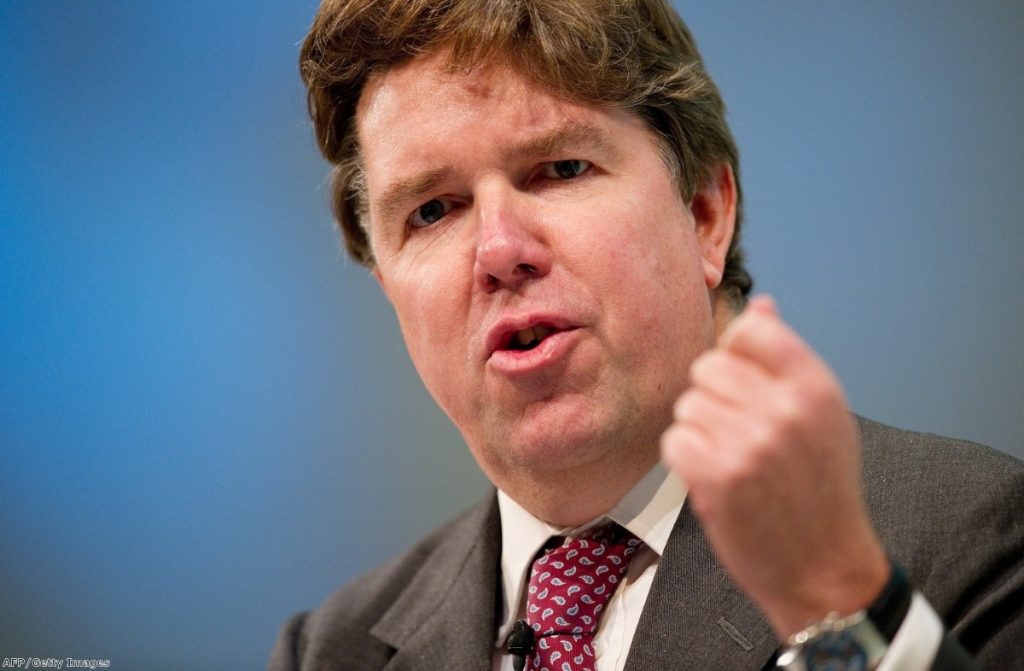Osborne position even weaker after Tucker interrogation
George Osborne's decision to personally attack Ed Balls appeared even less wise today, after Paul Tucker told MPs his only contacts over the Libor rate were with the Cabinet Office.
The deputy governor of the Bank of England categorically told the Treasury committee no official or minister urged him to lean on Barclays over the rates.
A series of emails released under freedom of information rules today revealed Cabinet secretary Sir Jeremy Heywood privately raised questions about the way Libor was being set during the 2008 banking crisis, but there was no 'smoking gun' showing he pushed for a 'lowballing' of the result.
Tucker said he had spoken about Libor with several figures in the Cabinet Office but there was no pressure on Barclays – and no contact at all from figures in the Treasury.


Osborne strongly suggested Balls could have had a role pushing for the lowballing of the rate in an article for the Spectator last week, although his aides later admitted he had no evidence to substantiate his claim. The evidence session is likely to raise further questions about his judgement.
"It is now absolutely clear the chancellor's allegations last week were totally false and completely without foundation," Balls commented afterwards.
Tucker struggled to explain how Barclays and he had come to such different opinions about the conversations, with the bank lowballing its Libor results while he believed he had suggested n o such thing.
"I did not understand this conversation as Mr Diamond telling me about dishonesty or cheating," he insisted.
“We didn't take any responsibility for Libor. We were not a regulatory body.”
The Treasury meeting comes amid concerns about its ability to perform effectively.
Speaking to the Independent, Andrea Leadsom, who was generally considered the best-performing MP in the Diamond session, said the committee had failed to land a 'killer blow' against the Barclays boss despite hours of questioning.
"I don't think we felt we did a fantastic job," she said.
"It's a fair criticism to say 'you guys were useless'. The problem is we had about seven minutes each. Bob Diamond knew that.
"There was also the weight of expectation. Individual members of the committee were probably not quite as nervous as Diamond but, for sure, none of us slept great the night before.
"We [also] had great weaknesses in that we didn't have email trails. We didn't have recordings of the morning meetings where you could point to what had been said," she added.
"All we really had were the regulator's reports, what we'd seen in the media, what Barclays had put out, what the Bank of England had put out. So in a sense we were batting in the dark. You have to ask yourself, what would have worked better?"
Ed Miliband delivered a speech earlier calling for "root and branch change" of the banking industry.
The Labour leader proposed a forced sell-off of 400 bank branches – opening up the door for more competition in the retail banking sector by new players.
He also demanded more action on bonuses, a British investment bank to improve lending to small businesses and the establishment of a financial crime unit at the Serious Fraud Office (SFO).
Meanwhile, Osborne faced the prospect of his inquiries into reform of the rules around Libor becoming redundant, as the EU begins to investigate potential changes to the existing regulations.
EU commissioner Michel Barnier is starting a review of market indices at a continental level which could impose criminal sanctions for market abuse.
The review, which encompasses Libor and Euribor, may be shadowed by efforts in Washington, where US congressman Barney Frank is encouraging hearings on financial regulations around Libor and other indices.
The UK investigation, led by Martin Wheatley, may clash with the Brussels recommendations, particularly on regulation.

